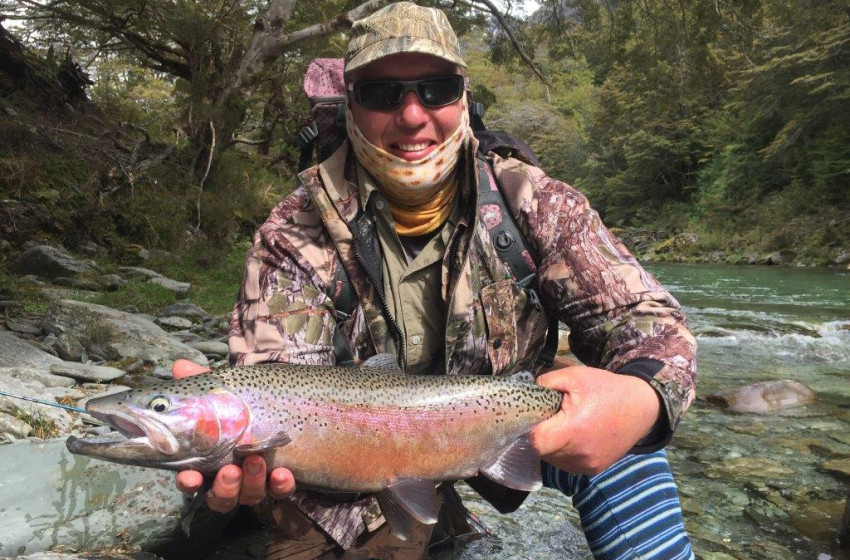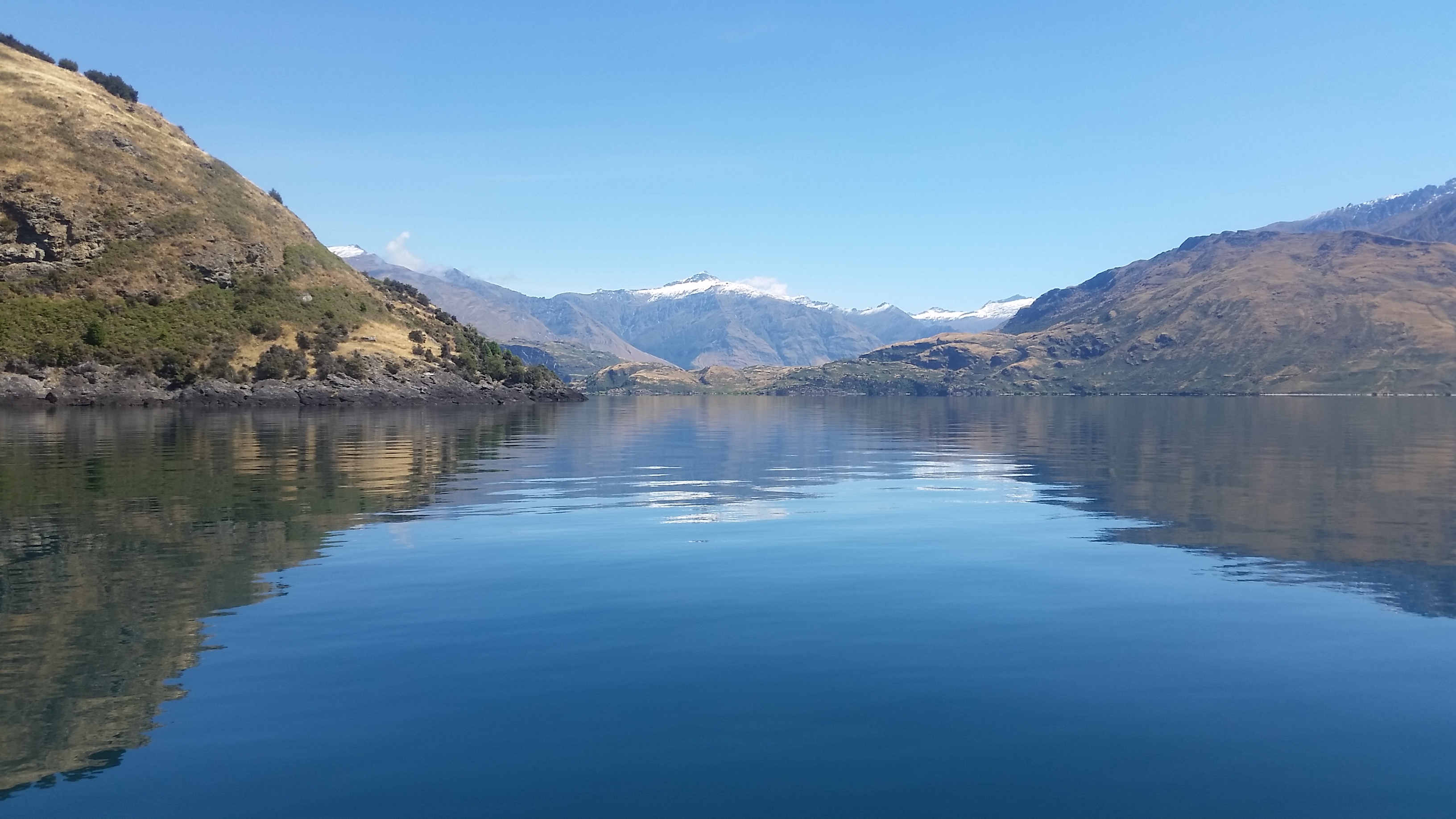Otago Reel Life March 2019
- Otago
- 29/03/2019

Get ready for autumn action
The days are getting shorter and the mornings cooler and daylight saving finishes on Sunday, April 7.
Right: Fish & Game Officer Steve Dixon loves to get into the backcountry...for obvious reasons.
Heading into the peak of autumn lowland fisheries will begin to liven up.
Large sea-run browns will be migrating upstream making them more available.
Sea-run salmon have been conspicuous by their absence, but some late runs could surprise.
Most brown trout fisheries close on April 30 so get out for the last month of the season.
Trout have gorged themselves on cicadas over the preceding months, they will be very fit, and healthy.
You won’t regret taking the odd one for a meal.
Brown and rainbow trout are gathered in abundance at the river mouths that feed the large lakes. Trolling is always a productive option.
Green and yellow cobras, and the traffic light have been catching well recently.
On any of the river mouths, fly fishing or spinning will catch fish.
During the day, colour combinations with red and orange will help.
In low light conditions a combination with black is recommended.
River mouths can fish particularly well into the evening but CAUTION!
Please take extra care at all times when wading.
Sandy deltas can get very soft and keep well clear of the drop off. A safety vest is a very sensible option.
The upper Clutha River generally fishes well through April.
Try swinging a colourful streamer fly behind a high density line for large rainbow moving upstream from lake Dunstan.
Backcountry rivers close at the end of May except for the Upper Pomahaka but please refer to the regulation guide for details.
Upstream migrations will enhance fish numbers on most rivers in the coming months, and these waters can offer some great late season angling opportunities.
If you exercise catch and release, please handle fish carefully over water and release quickly.
Salmon samples needed urgently
No one has come forward with salmon samples from Lake Wanaka, so anglers need to get on the water and start catching.

Lake Wanaka, picture perfect...but where are the anglers? We need salmon samples!
Samples are required for DNA analysis.
Anglers are being asked to freeze heads and include information on weight and length of fish, also the date and area of the lake where fish were caught.
Samples are also required from the Lower Clutha catchment.
Please contact Fish & Game officers: chalford@fishandgame.org.nz or pvanklink@fishandgame.org.nz for collection.
For complaints about pollution or damage to rivers, contact the Otago Regional Council (ORC) 24-hour pollution hotline on 0800-800 033.
Up-to-date river flow information can be found on the ORC site here
Cliff Halford Fish & Game Officer, Cromwell